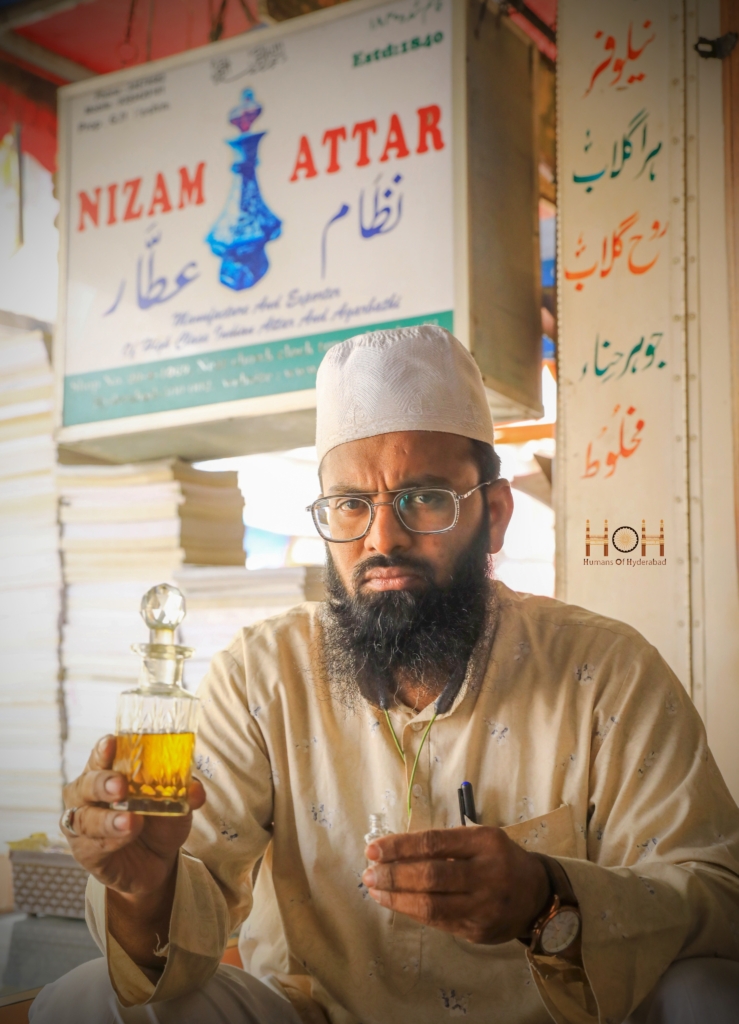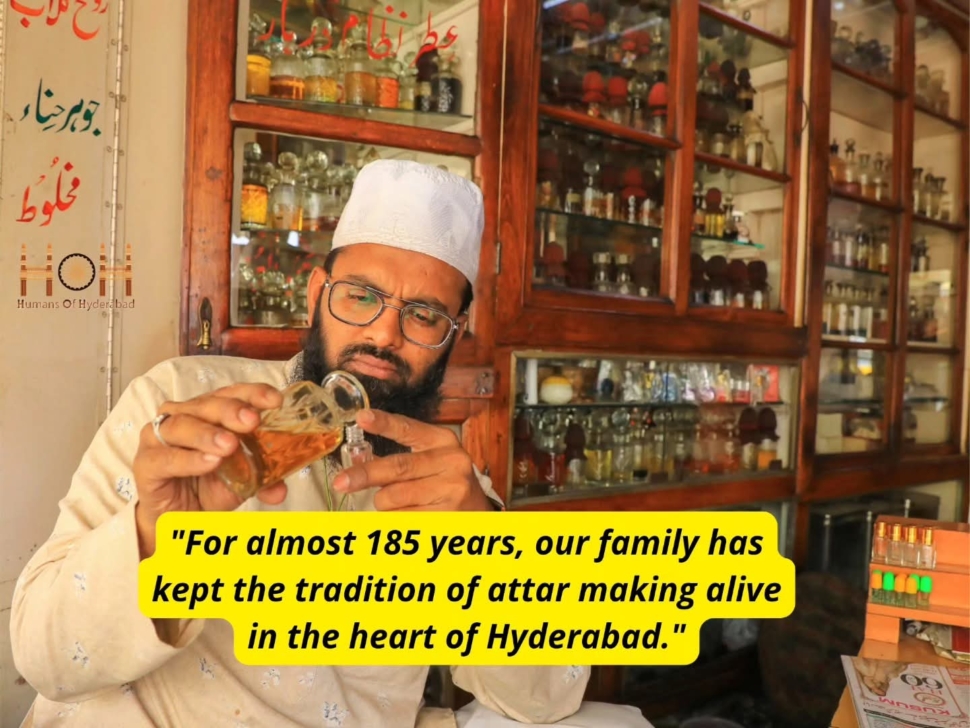For almost 185 years, the family of Ghulam Mohammad Fareed has been making attars in the heart of Hyderabad. Ghulam Mohammad Fareed, who has been running the family shop near Charminar for the past 25 years, continues a craft passed down through generations.
The story begins in 1840, when Ghulam Mohammad Fareed’s great-great-grandfather brought the art of traditional Kannauj perfumery to Hyderabad. Known for its natural, alcohol-free attars, the craft impressed the Nizam of the time, who allowed him to open a shop near Charminar. The shop was named Nizam Attar in honour of this royal association. By 1860, the business had become well-established, supplying attars to Hyderabad’s households and the royal court alike.

Attar making is a slow, meticulous process. Flowers, herbs, and spices are distilled into sandalwood oil over several days, allowing the fragrance to develop naturally. Ghulam Mohammad Fareed explains, “We still follow the same methods my ancestors taught us. Everything is slow and careful. You cannot rush it.” Popular attars include Ruh Gulab, made from pure rose petals; Shamama, a blend of spices and florals; Oudh, Amber, Majmua, and Mitti attar, which captures the scent of rain on dry earth.
In Hyderabad, attar is more than fragrance. People apply it for prayers, weddings, or daily wear. During the Ramadan, it is common to use attar before Iftar or Taraweeh, with scents like Musk, Oudh, and Amber being especially preferred. Ghulam Mohammad Fareed notes, “Attar is part of life here. It’s not just a fragrance; it marks occasions, culture, rituals and memories.”
Nearly two centuries later, the family of Ghulam Mohammad Fareed continues to make attars the traditional way, maintaining a link to the past while serving the city that has supported them for generations.
